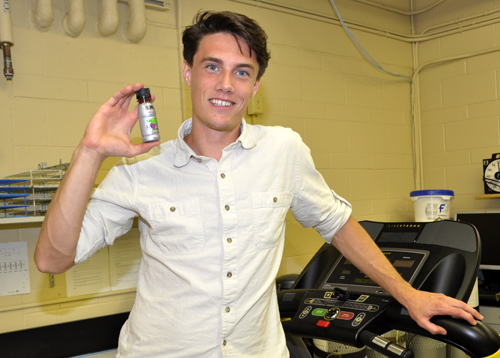
The next time you go for a run, you might want to drink a glass of beetroot juice to help your body use oxygen more efficiently. For his master’s thesis in Human Health and Nutritional Sciences, Kyle Boorsma studied the health effects of beetroot juice on runners.
As a long-distance runner and one of U of G’s most decorated athletes, Boorsma says he often drank beetroot juice to improve his oxygen intake. “There are quite a few athletes who are currently using beetroot juice,” he says, referring to members of U of G’s varsity running team and running club. “I’ve used it many times.”
Beets and dark green leafy vegetables contain high levels of nitrates, which the body converts into nitric oxide.
“Increasing the availability of this compound can affect many different systems in the body,” says Boorsma. “The main effect that athletes are most interested in is that, following nitrate supplementation with beetroot juice, you have a reduction in the amount of oxygen required to run or cycle at any given speed.”
The body’s performance is limited by the amount of oxygen it can take in and use, so lowering the body’s oxygen requirements can help improve performance. Boorsma says no other dietary intervention has been shown to produce similar results.
Previous research on beetroot juice supplementation showed the greatest improvement in untrained cyclists but not in elite athletes, he adds, most likely because their bodies are already in excellent shape. His study looked at elite athletes from U of G’s varsity track team and the Speed River Track Club.
The athletes were asked to drink 210 millilitres of concentrated beetroot juice two-and-a-half hours before visiting the lab, where they had their oxygen uptake measured after running on a treadmill and on a 1,500-metre track.
“On a group basis, there was no improvement in performance or a reduction in the oxygen consumption,” says Boorsma, adding that beetroot juice could be more beneficial for less-trained athletes.